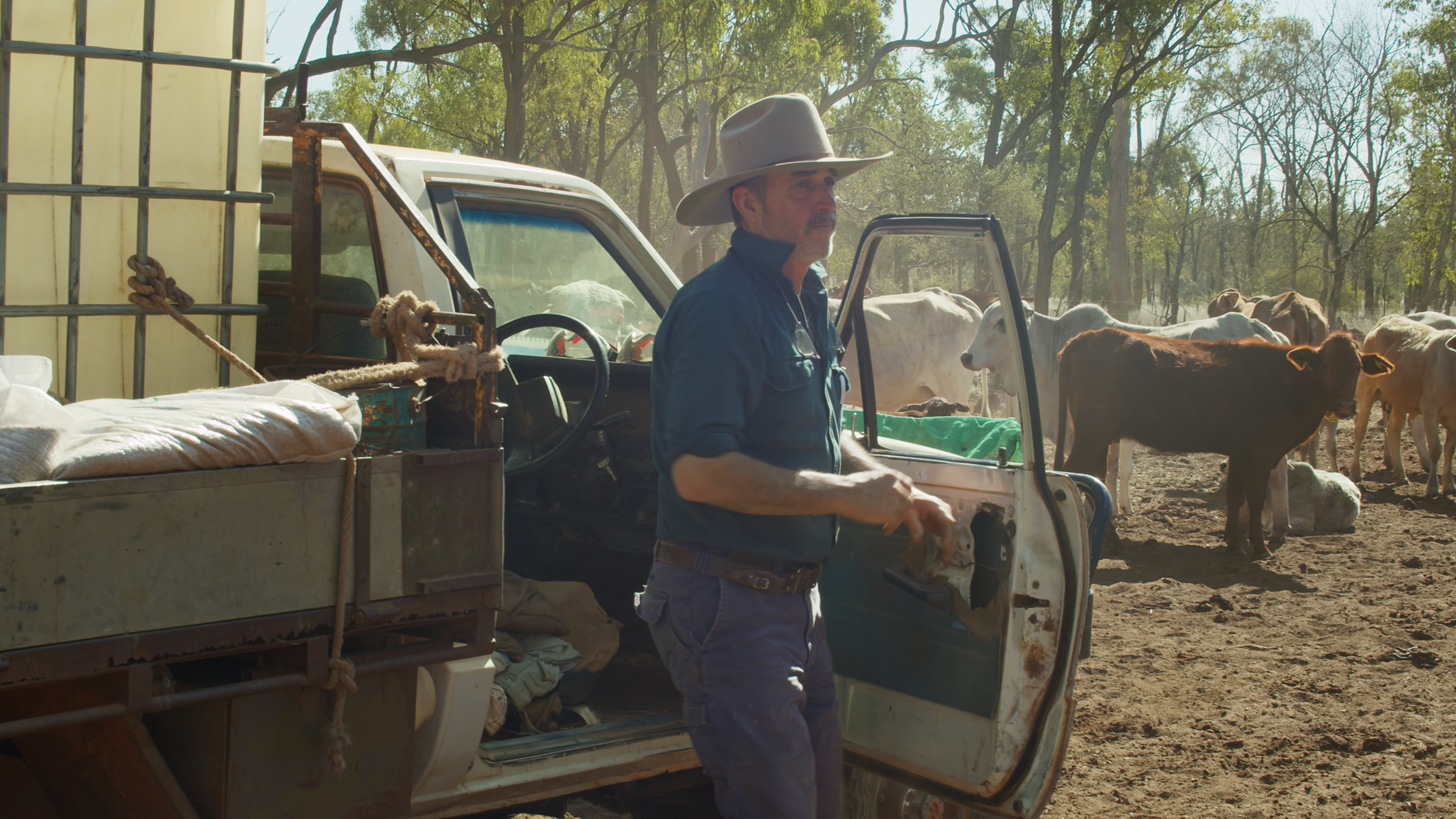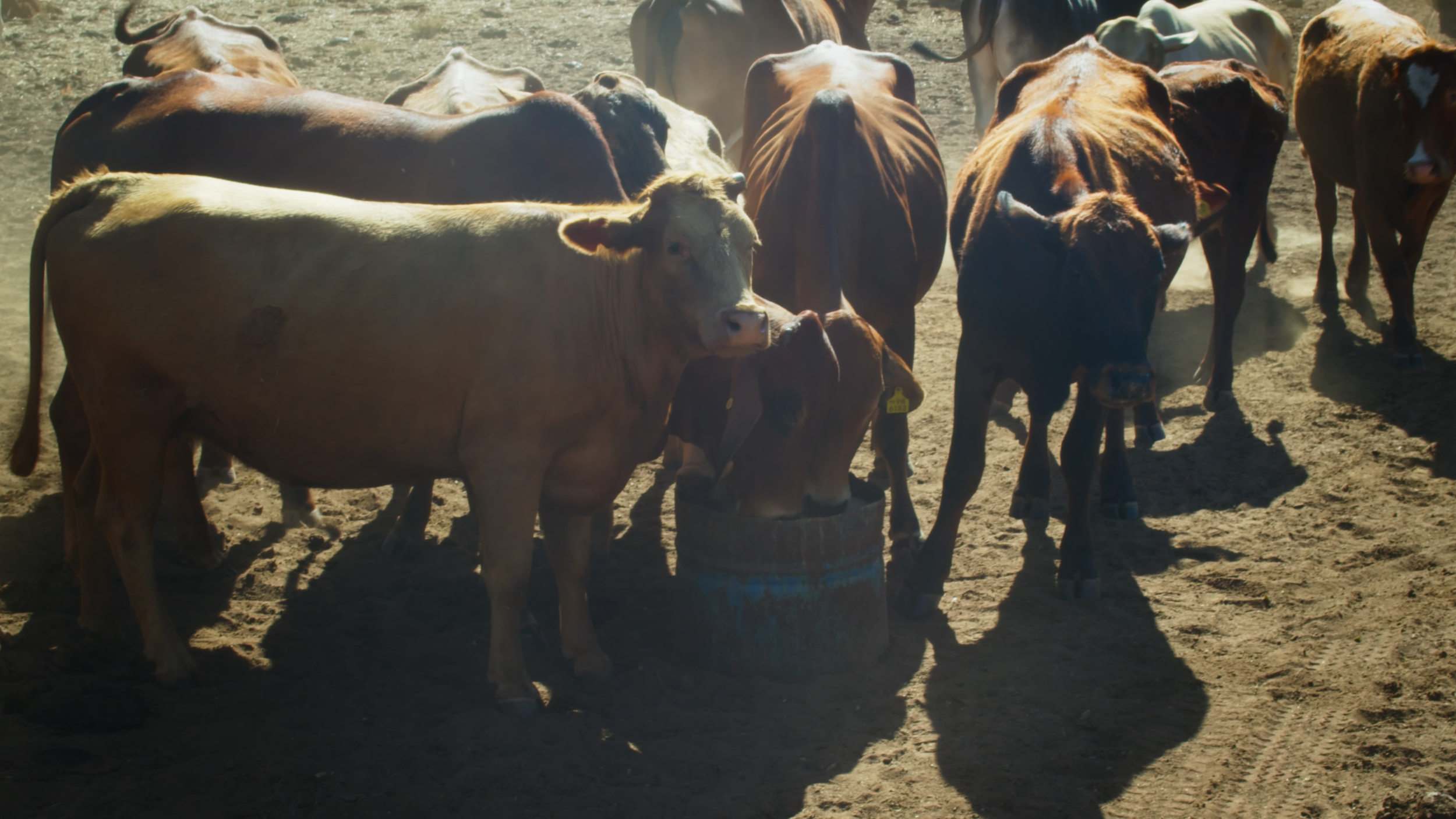
“People have to get mobilised and take the issues seriously, because us farmers, we produce food, not for the right to farm, but for the right for people to eat - and if those production systems are jeopardised, there won’t be a food shortage, there’ll be food scarcity”, Bruce Currie
In conversation with Bruce Currie, Central West Queensland
BC: My name’s Bruce Currie, along with my wife Annette and family, we run a regenerative beef cattle operation, on the property Speculation, which is in the desert uplands bi-region, north of the township of Jericho in Central West Queensland. We run a mixed cattle breeding operation and we turn off weiner steers for the store market, because that best suits this type of landscape. We’re real passionate about being regenerative, sustainable, primary producers.
CR: You’ve previously run for office as an independent promoting the need for reliable water access and renewable energies, why is sustainability so important to you
BC: We’re really focused on being sustainable and, better still, regenerative because what we leave is gonna be for the needs of the next generation. That’s why we’re concerned and focused on climate change, because of the impacts increased temperatures will have on our operation here.
In 2011, we had some devastating bushfires go through this area and it impacted severely on the whole district. The heat of those fires decimated some of our landscape to the point that no grass has grown back on it. With climate change affecting also things like bees and insects, the pollinators of our production systems, we’re very fearful that our country could become completely unproductive altogether. And not just our property [but] large tracts of Australia because there are areas that are more severely affected already by extreme weather conditions, not just our area.
CR: Given how you’ve already had to deal with these devastating effects of climate change, do you think there’s enough urgency being reflected at a social or a political level in terms of taking action on climate change?
BC: Everyone has to take climate change seriously because it affects every one of us in every different dimension. Like here, when we had the 2011 fires, it decimated our production system. Not 10 years in the future, or whatnot, it happened 10 years ago and we’re still suffering the consequences.
The way I see it people have to get mobilised and take the issues seriously, because us farmers, we produce food, not for the right to farm, but it’s for the right for people to eat, and if those production systems are jeopardised, there won’t be a food shortage, there’ll be food scarcity.
We’re creating an environment where production systems won’t survive, and if they can’t survive, we won’t be able to survive.
CR: Do you think then there is a big divide in awareness between urban and rural areas, given that farmers like yourselves have to directly face the effects of climate change on a day to day basis?
BC: There are many aspects to the global climate, you’ve got fire, flood and drought and every one of them affects Australia, to different extents. With climate change, they’re getting more severe, more extreme. So their impact on our production systems is more severe. So you may live in one of the big urban centres, but your insurance premium is going to have to pay for the damage that these increasingly extreme events, the damage they’re causing.
CR: If you could send a message then to all of your fellow Queenslanders or even to all your fellow Australians what would it be?
BC: Everyone, my call is this - think about climate change, do some research, get knowledgeable and be proactive. People think, “what can we do?”, well, think about who you vote for. How serious are they, how fair dinkum are they about addressing your standard of living, the future of future generations. Don’t suggest that someone else can do it or “I keep voting for ‘such’n’such’ because I’ve always done it” - you're gonna be responsible for the effects of climate change. If you vote for someone that denies it’s happening, it’ll be too late.
There’s plenty of people that say “aww it's not happening or the volcanoes, or whatnot,” that just doesn’t cut it because when it's occurring now, excuses are not going to secure the long-term future of future generations. As individuals, we do the “what if '' scenarios every day; asking ourselves what if this happens or that happens. Big corporations pay scenario strategists to think through big situations and climate change is one of those situations. And when we ask those “what if'' questions it's obvious that we need to be proactive about it. Because if we do nothing about it and it continues to get worse and worse and worse, there’s no fallback position, we’re in deep trouble.
